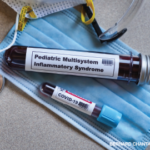To distinguish MIS-C from Kawasaki disease and severe acute COVID-19 infection, Dr. Son said gastrointestinal and cardiovascular involvement are common in MIS-C. Also, coronary artery aneurysms are less common in MIS-C than in Kawasaki disease, and severe acute COVID-19 often involves respiratory disease without cardiovascular complications or mucocutaneous involvement.
Regarding treatment of MIS-C, McArdle et al. conducted an international observational cohort study of clinical and outcome data regarding suspected MIS-C cases uploaded by physicians to a web-based database. In examining data from 614 children from 32 countries, the authors found no difference in recovery from MIS-C after primary treatment with intravenous immunoglobulin (IVIG) alone, IVIG plus glucocorticoids or glucocorticoids alone.11
However, Dr. Son and colleagues published a separate article that found initial treatment with IVIG plus glucocorticoids in children and adolescents with MIS-C was associated with a lower risk of new or persistent cardiovascular dysfunction than IVIG alone.12
More work clearly remains to discover the best treatment strategies for these patients.
The Cytokine Storm
In a subsequent talk, Puja Mehta, MD, clinical research fellow in respiratory medicine, Rheumatology Specialist Registrar, Centre for Inflammation and Tissue Repair, University College London, U.K., discussed COVID-19 hyperinflammation and cytokine storm syndrome.
The syndrome refers to immune dysregulation with increased circulating cytokine levels, systemic inflammatory symptoms and organ dysfunction disproportionate to the initial trigger. The hyperinflammation seen in cytokine storm syndrome can be caused by primary hemophagocytic lymphohistiocytosis (HLH) or other such entity, genetic abnormalities, secondary HLH as seen in certain rheumatologic diseases, malignancies, infections and immunodeficient states, or cytokine release syndrome due to CAR-T cell therapy and allogeneic stem cell transplantation.
Dr. Mehta’s main question: Is acute severe COVID-19 a cytokine storm syndrome? In an article on this topic in Current Opinion in Rheumatology, Dr. Mehta and David Fajgenbaum, MD, MBA, MSc, FCPP, discuss arguments for and against labeling severe COVID-19 as a cytokine storm syndrome. They note that the beneficial effects of corticosteroids and interleukin (IL) 6 inhibition may suggest that inflammation serves as a modifiable pathogenic component of severe COVID-19. Moreover, they argue that hyperinflammation is a key aspect of severe COVID-19 and that reliable clinical criteria and biomarkers to predict prognosis and response to treatment are needed to help patients.13
Building on this topic, Randy Cron, MD, PhD, professor of pediatrics and medicine, University of Alabama at Birmingham, and director, Division of Pediatric Rheumatology and the Pediatric Rheumatology fellowship program, Children’s of Alabama, Birmingham, discussed rheumatologic DMARD and biologic use in the treatment of COVID-19 hyperinflammation. Dr. Cron gave an overview of the myriad clinical studies on this subject and echoed Dr. Mehta in stating that the most severely ill patients with COVID-19 pneumonia suffer a version of cytokine storm with multi-organ failure.




